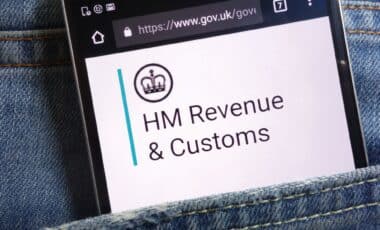Prime Minister Sir Keir Starmer and Chancellor Rachel Reeves have unveiled significant changes to the UK’s electric vehicle zero emissions vehicle (ZEV) mandate, marking a critical shift in the country’s automotive strategy.
These updates, announced during a visit to a Jaguar Land Rover plant in Birmingham, are designed to provide more flexibility for manufacturers, who have faced mounting challenges. In particular, the revisions aim to address the pressures brought on by recent U.S. tariffs on car exports.
According to The Epoch Times, the government’s actions come as part of a broader effort to strengthen the UK’s position in the global electric vehicle market while fostering long-term growth in the sector.
Updated ZEV Mandate and New Exemptions
The government has relaxed the rules around fines for car manufacturers not meeting electric vehicle (EV) sales targets. A key adjustment is that cleaner petrol cars sold before 2030 will now count toward the ZEV mandate.
Hybrid vehicles will also be allowed until 2035, easing the transition for manufacturers and providing more time for preparation. There are also new exemptions for small and micro-volume manufacturers, such as MacLaren and Aston Martin, which the Department for Trade (DfT) said will preserve some of the UK car industry’s most iconic brands.
The UK government has reinstated the 2030 phase-out date for the sale of new internal combustion engine (ICE) vehicles, a pledge made during Labour’s election campaign. As Chancellor Rachel Reeves stated,
This is fundamental for achieving our plans for energy security and, crucially, for incentivising investments in Britain.
The move fulfills Transport Secretary Heidi Alexander‘s earlier announcement and aims to boost energy security while incentivizing investment in Britain’s automotive industry. Reeves emphasized:
Which is why today we are reinstating the 2030 phase-out date for new petrol and diesel car sales, just as we promised in the election.
Supporting the UK Car Industry Amid U.S. Tariffs
The government’s updated ZEV mandate also addresses challenges posed by the introduction of 25% tariffs on UK-made vehicles and car parts by the U.S. These tariffs have significantly impacted the UK’s second-largest car export market.
According to the Society of Motor Manufacturers and Traders (SMMT), more than 101,000 cars were shipped to the United States last year, representing 16.9% of the UK’s car exports.
The Society welcomed the changes, acknowledging that the government has listened to the industry’s concerns and responded to the pressures of global market shifts.
SMMT Chief Executive Mike Hawes responded to the ZEV mandate changes, saying,
The government has rightly listened to industry, responded quickly to global dynamics, and recognised the intense pressure manufacturers are under. Industry remains committed to decarbonising road transport but the ZEV Mandate targets are incredibly challenging, especially with a paucity of consumer demand and geopolitical upheaval.
He added that the industry will await full details of the regulatory amendments,
but, given the potentially severe headwinds facing manufacturers following the introduction of US tariffs, greater action will almost certainly be needed to safeguard our industry’s competitiveness.
Challenges in Achieving EV Adoption Targets
Despite the positive shift in policy, industry experts have pointed out that the mandated EV targets remain ambitious. Although March marked a record month for new EV registrations, consumer demand still lags behind expectations. As Mike Hawes mentioned,
To grow public demand for EVs to the level required needs ‘equally bold’ financial incentives.
With petrol vehicles maintaining the highest market share, more bold financial incentives will be required to drive wider adoption of electric vehicles.









